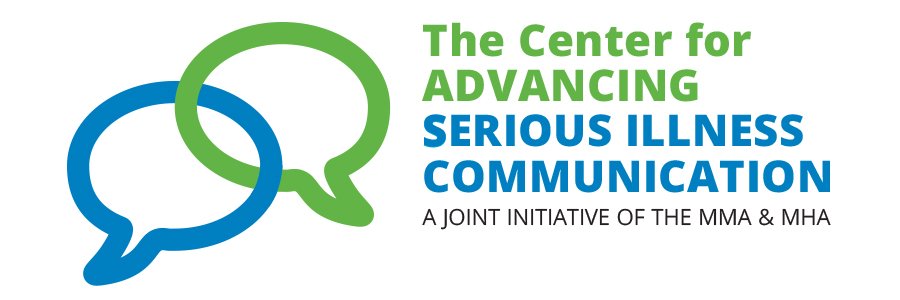The Center for Advancing Serious Illness Communication prepares clinicians and health care organizations to engage every patient experiencing a serious illness in meaningful discussion about their diagnosis, prognosis, and care choices.
How is serious illness communication different from palliative care?
Serious illness communication is one component of palliative care, which is a special type of care to help patients (and their loved ones) navigate a critical time related to a serious diagnosis.
Why is there special training for serious illness communication?
There are not enough palliative care specialists to meet the needs of patients so it is critical that all clinicians have some level of familiarity and comfort with conducting these types of conversations.
There are evidence-based tools and training available to help hone the skills needed to have a meaningful discussion and this Center is here to help.
What are the benefits of learning about serious illness communication?
Studies have shown that satisfaction improves for patients, their loved ones, and for their caregivers and clinicians when these conversations happen.
Having a serious illness communication program positively impacts patient care and staff wellness.
COVID-19 has uncovered the need for a different communication style - the need was always there but now both healthcare professionals and the general public are more aware of its importance.
How did this Center begin?
A group of healthcare leaders in Minnesota identified this area of care as one with room for improvement. A collaborative study group formed in 2017 with representatives from many health systems to explore barriers to serious illness communication, available resources, and possible solutions. Following a period of in-depth study and planning, the Minnesota Medical Association and the Minnesota Hospital Association jointly procured funding from Blue Cross Blue Shield Minnesota to launch the Center in early 2021.


